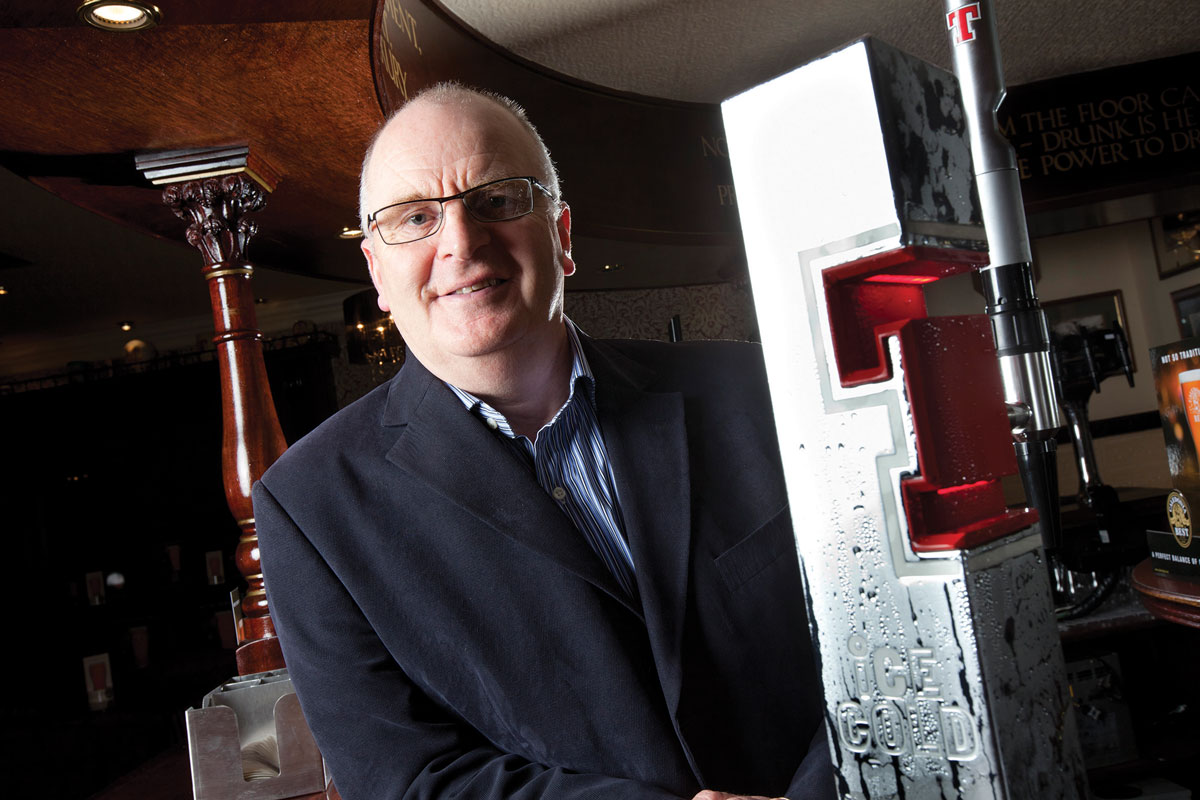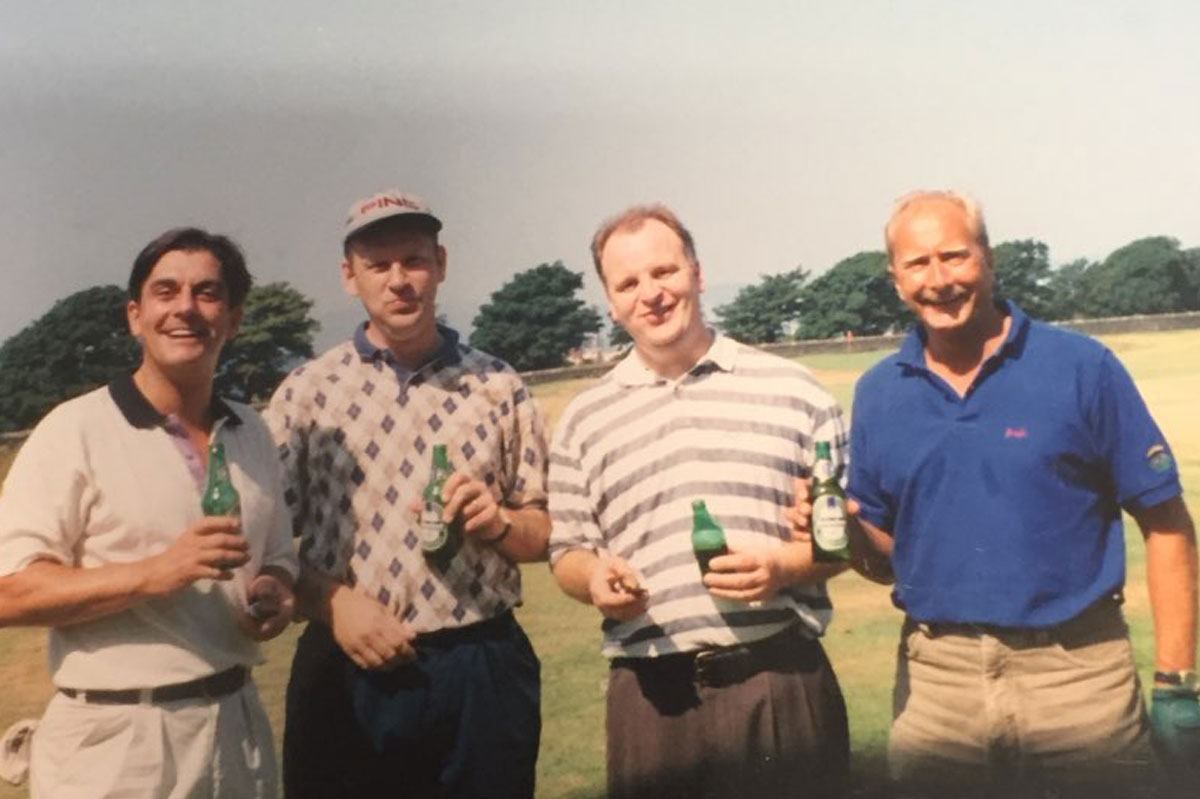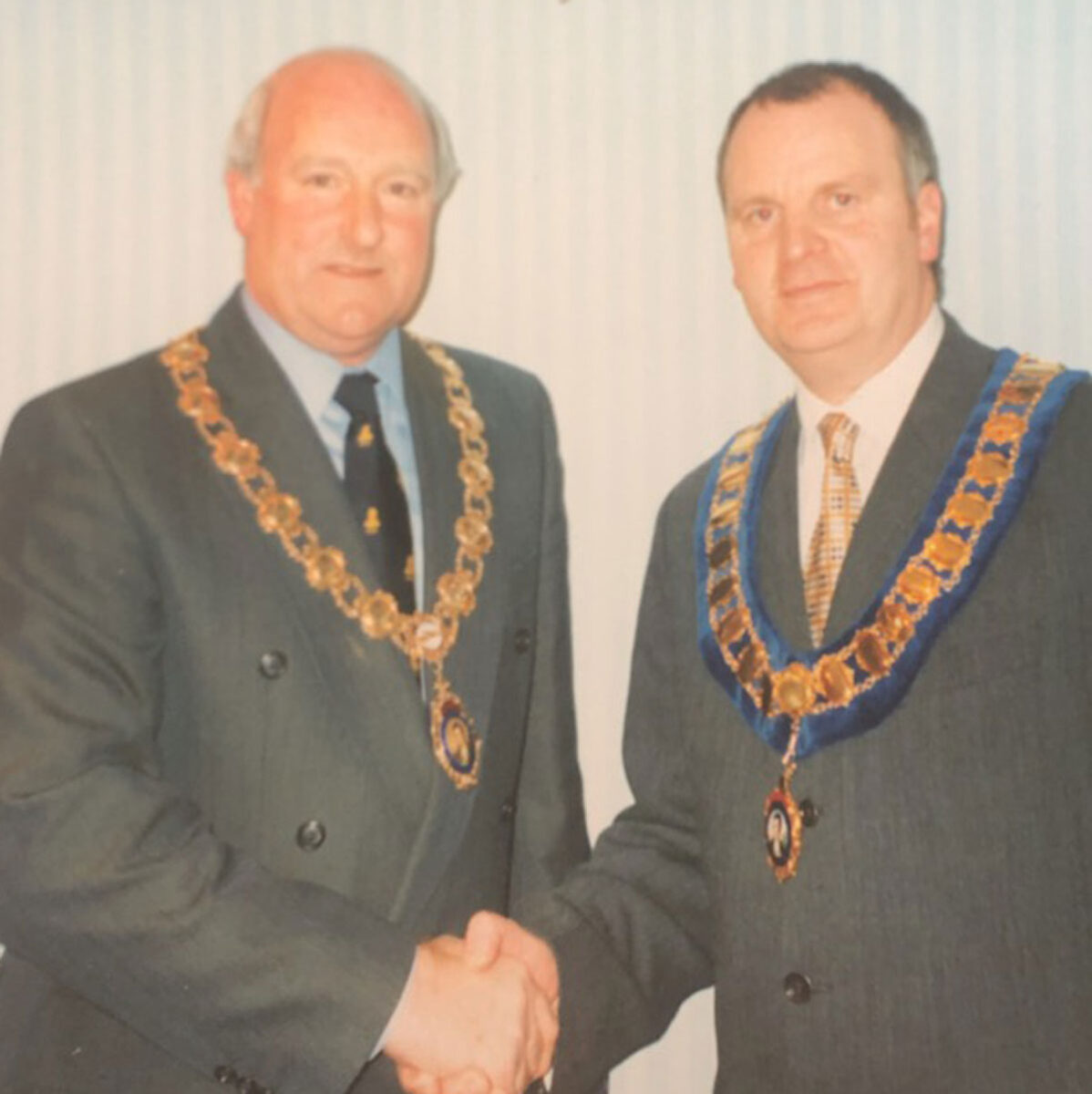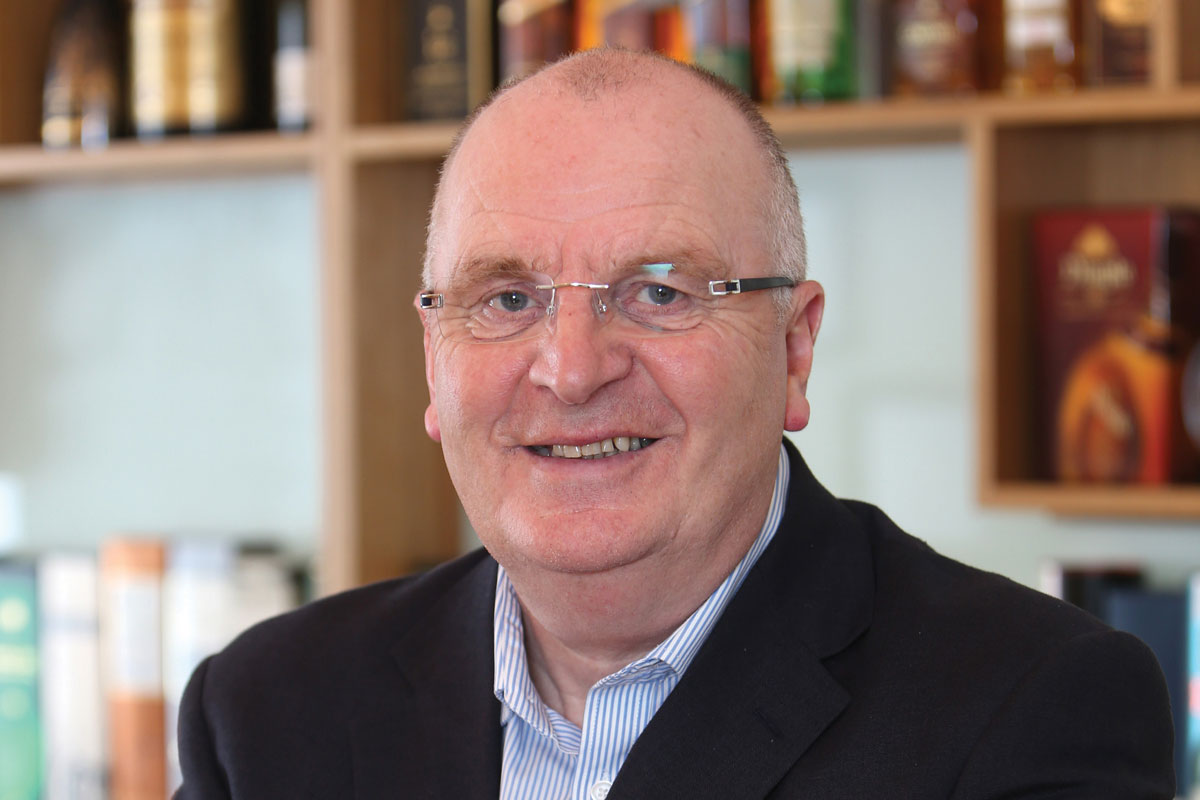
60 Years of SLTN: Industry veteran witnessed a lot of change over the course of his career
By Dave Hunter
John Gilligan is a man that knows a thing or two about Scottish beer.
The former Tennent’s managing director started out as a salesman for Drybrough & Co in 1978 in a very different landscape than we know today.
The long-gone Drybrough was one of several brewers vying for on-trade business in the late ’70s, along with other departed names including Lorimer’s, Ushers and Scottish Brewers/Scottish & Newcastle – as well as a couple that younger readers will be more familiar with: Tennent’s and Belhaven.
In line with the market of the time, Drybrough’s ales were its biggest-selling products, and when John joined the company in ’78, a significant share of the company’s business was social clubs.
“There were lots of owner-occupiers then,” he told SLTN last month.
“Second generation publicans. A lot of the guys that ran the pubs worked in them in shirt and tie. Old school. Really good.
“It’s so corny, but it was all about relationships. You got to like them and they liked you, or they didn’t. But it was a great business, because they were all making money.”

The life of a sales rep was quite a bit different as well.
“You had no phones,” said John. “You literally got up in the morning and you had your journey plan. They knew where you were supposed to be and you would submit at the end of the week where you’d been. As long as you were delivering numbers, it was fine. If you weren’t delivering numbers, it was a problem.
“One of the biggest problems in the modern world is micro-management. It’s a nightmare. Back then it was a fact of life: if you didn’t do the job you wouldn’t have got the numbers.”
As time went on, however, the company did start to check where its salesmen were spending their time. Spot-checks were carried out to ensure people had actually been visiting the pubs on their journey plan.
This was where long-standing relationships could really help a salesman out.
When Drybrough realised John had gone off-plan one day, he was called into the office to explain himself.
He recalled: “The guy says ‘John, where were you yesterday?’ You were supposed to be in Kilsyth’.
“I said I’d decided to do a cold calling day instead. They told me I shouldn’t have gone off plan and I said OK, I’m sorry about that.
“But there was another problem.
“’We called the Canal Social Club, Kilsyth British Legion, Kilsyth Bowling Club. Called all your accounts to see if you’d been. And every one of them said you’d just left’.
“I burst out laughing.”
The strong relationships the salesmen enjoyed with their customers had other benefits, too, as John discovered when Drybrough launched American beer Holsten Pils into the Scottish market.
Where most of the salesmen were panicking about how they’d reach their 50-case target of an unknown beer, John’s colleague, John Ford, took the whole thing in his stride.
“We were called in and got this presentation,” remembered John.
“We’ve to sell 50 cases each. Big John comes in to the reps’ room and there’s a big round table with two phones in the middle of the room.
“He phones Derry Treanor, who had a famous pub in the Gorbals. ‘Hi Derry, it’s John. How’s it going? What’s that stuff called again? Holsten Pils? Derry, we’ve got a new beer out. You’ll love it. I’ll put you down for ten cases. And tell Frank, Tommy, Brendan and Mick they’re getting ten cases each’. And he hangs up the phone. 50 cases.
“I’m journey planning, working out where I’m going. I could have punched him!”
But that was the way of the business back then: Big John had built those strong relationships. He’d earned the easy sale.

By the time John moved onto Scottish Brewers/Scottish & Newcastle in the 1980s, he’d more than learned his trade. He credits Drybrough salesmen including Jimmy Boyle and Bill Lamb with helping him develop his skills during his time at the company.
But they may not have been able to completely prepare him for the culture shock of joining the much bigger Scottish & Newcastle.
The company, which would years later be bought by Heineken, owned big brands including Tartan Special and McEwan’s Export and was a much more formal operation than the comparatively small Drybrough.
“It was like selling Vauxhalls and the next thing you knew you were selling BMWs,” said John. “It was quite a shock.”
John spent 15 years with S&N, finishing up as regional director for the west. When he left with a healthy pay off, he invested in a few pubs and went into semi-retirement. It didn’t stick.
“I missed the day-to-day,” he said. “It was almost like a sabbatical. I was golfing two or three days a week. It was nice, but I was 50. I thought ‘I’m too young for this.’”
Keen to return to the sales world, John put his name out into the market and was soon snapped up by wholesaler Wm Morton (now Inverarity Morton), joining as sales manager and ultimately rising to sales director.
He said: “At Morton’s I had an absolute ball. A wonderful time. Learned so much. It was just great.”
Happy and with a great relationship with managing director Stephen Russell, John may well have finished his career there. But fate was about to come calling.
Stephen Glancey, former finance director at S&N, was now boss of Irish drinks company C&C. The business had acquired Tennent’s, was looking to invest millions into the brand and the Wellpark brewery, and needed someone to run the business as managing director.
“I was happy as Larry where I was so I had to think about it,” said John.
“I spoke to my wife and she said ‘are you going back into the fire again?’ I said aye, I will be. But I was 59 and still fit and healthy. The financial package was crazy, but life was going to become crazy as well. But it was the thrill as well.
“I always thought if I’d finished up at Morton’s it would have been great, but Tennent’s was the icing on the cake.”
John now says his three years as managing director of Tennent’s, during which time he oversaw the acquisition of wholesaler Wallaces Express, was ‘the biggest thrill of my life’ but admits that he was ‘absolutely knackered’ at the end of it.

After going part-time in a business development role for several years, John retired from Tennent’s just before the pandemic.
“They always say there’s a morning you wake up and you think ‘I can’t be bothered with this’. You just know,” he said.
But his vast experience in the Scottish drinks industry has left him fairly sanguine about the changes currently being seen in the market.
He saw plenty change during his four decades in the business, after all.
“The hardest thing for people to accept – especially as you get older – is evolution,” he said.
“‘Oh, the pubs are all shutting!’
“When I started in Drybrough’s I would have said 75% of my business was social clubs. And now there’s none. Within 30 years you’d gone from almost 80% of your business being social clubs to there being none.
“Things evolve.”




















